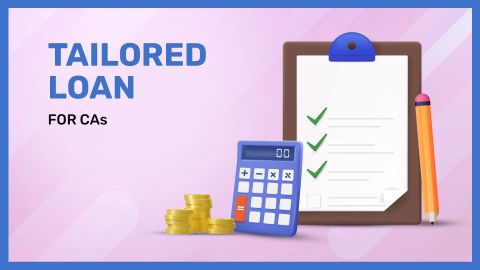Examples of a Certified Public Accountant
CPAs work in diverse industries and hold various roles. Some examples include:
- Tax Advisors: Specialise in helping individuals and businesses comply with tax laws, optimise their tax liabilities, and plan for the future.
- Auditors: Examine financial statements to ensure accuracy and compliance with regulations. Auditors play a vital role in ensuring transparency and accountability.
- Forensic Accountants: Investigate financial fraud, embezzlement, and other financial crimes.
- Financial Consultants: Provide strategic financial advice to businesses on growth, restructuring, or budgeting.
Each of these roles highlights the wide range of expertise and value that CPAs bring to the table.
Roles and Responsibilities of a Certified Public Accountant (CPA)
A CPA wears many hats in the finance world. Here are some of their key responsibilities:
- Auditing: CPAs ensure that financial statements are accurate and comply with accounting standards.
- Tax Planning and Preparation: CPAs help clients minimise tax liabilities and prepare annual tax filings.
- Consultation: Provide financial advice on business decisions, mergers, and investments.
- Compliance: Ensure that businesses and individuals meet financial regulations and reporting standards.
- Forensic Accounting: Investigate fraud and financial misconduct.
These roles make CPAs essential to the functioning of both small businesses and large corporations.
Required skills for Certified Public Accountant (CPA)
CPAs must keep themselves informed about the latest tax updates, regulatory changes, and developments introduced by the Financial Accounting Standards Board (FASB). Beyond accounting expertise, a successful CPA should also demonstrate the following key skills:
Technical and Analytical Skills:
- Accounting and financial knowledge: Strong command of accounting standards, financial reporting, taxation, and auditing practices.
- Data analysis: Ability to evaluate detailed financial information, identify patterns, and provide meaningful insights.
- Software expertise: Proficient in accounting software and advanced Excel functions.
- Business understanding: Awareness of business processes, operations, and strategic decision-making.
Interpersonal and Soft Skills:
- Communication: Ability to clearly explain complex financial matters and actively listen.
- Attention to detail: Precision in reviewing financial documents and identifying errors.
- Problem-solving: Skilled at analyzing issues and recommending effective solutions.
- Time management: Capable of managing multiple responsibilities and meeting strict deadlines.
- Adaptability: Comfortable with changes in technology, regulations, and business environments.
- Ethical behavior: Demonstrates integrity, professionalism, and sound judgment at all times.
Difference between CPA and Accountant
Feature
|
Certified Public Accountant (CPA)
|
Accountant
|
Licensing
|
Requires a state-issued license from the Board of Accountancy.
|
No professional license is necessary.
|
Education
|
Must complete 150 semester hours of education (often including a master’s degree), pass the Uniform CPA Exam, and fulfill experience requirements.
|
Usually needs a bachelor’s degree in accounting or a related discipline.
|
Scope of Work
|
Can handle all standard accounting tasks along with specialized services backed by legal authority.
|
Manages routine accounting functions such as bookkeeping, preparing financial statements, and internal audits.
|
Legal Authority
|
Authorized to represent clients before the IRS, certify audited financial statements, and submit reports to the SEC for public companies.
|
Not permitted to certify audits, represent clients before the IRS, or file SEC reports.
|
Ethics
|
Must follow the strict ethical guidelines and Code of Professional Conduct set by the AICPA.
|
No mandatory ethics code or governing body, though many follow general professional standards.
|
Salary and Demand
|
Higher earning potential due to advanced credentials and regulatory authority.
|
Typically earns less compared to CPAs.
|
A CPA holds more legal authority and is often considered more prestigious than a general accountant due to the CPA's ability to perform audits and represent clients in legal tax matters.
Benefits of becoming a CPA
Career and financial benefits
- Higher earning potential: CPAs typically earn more than non-CPA accountants, and this salary gap widens with experience, as highlighted by accounting.com and Becker CPA.
- Enhanced job security: The consistent demand for CPAs—especially in niche areas—offers strong career stability.
- Accelerated career growth: Holding a CPA credential helps professionals move into senior and leadership roles more quickly, as employers value the advanced skill set.
- Stronger professional credibility: This globally respected certification reflects expert-level competence and helps you stand out in the field.
Opportunity and flexibility
- Multiple career options: A CPA license qualifies professionals for varied roles in auditing, taxation, forensic accounting, financial analysis, and consulting.
- Industry-wide relevance: CPAs are essential in public accounting firms, private companies, government agencies, and non-profit organizations.
- International mobility: Global recognition of the CPA credential opens doors to opportunities worldwide.
- Entrepreneurial potential: CPAs can establish their own firms and offer a wide range of professional services.
How to Become a Certified Public Accountant (CPA)?
Becoming a CPA involves a few important steps. You will need the right education, work experience, and pass specific exams. Here’s a step-by-step guide to help you understand the process clearly.
1. Earn a Bachelor's Degree
To get started, you’ll first need to complete a bachelor’s degree, usually in accounting or a related field. Most states require 150 semester hours of college coursework to be eligible for the CPA exam. Since a bachelor’s degree typically covers 120 hours, you may need to take extra classes, pursue a double major, or even go for a master's degree to meet the requirement.
Undergraduate and postgraduate accounting programs usually cover key subjects like financial accounting, taxation, and auditing. These courses also introduce you to accounting software and tools used in the industry.
2. Pass the CPA Exam
The next step is to pass the Uniform CPA Exam. Each state has its own rules about who can sit for the exam. In general:
- You’ll need to have completed your education requirements
- Some states have minimum age limits (typically 18 to 21 years)
- A few states also require you to be a U.S. citizen or permanent resident
The CPA exam is known for being challenging, so be sure to prepare thoroughly.
3. Gain Relevant Work Experience
Most states require CPA candidates to have practical experience, usually around two years in public accounting. However, some states accept relevant experience in private companies or government roles, though more years might be needed in those cases.
It’s best to check with your state board to know exactly what kind of experience qualifies.
4. Apply for a CPA License
Once you've completed the education, exam, and experience requirements, you can apply for your CPA license through your state’s Board of Accountancy. Most states will also require you to pass an ethics exam.
To summarise, most states require:
- Completion of educational qualifications
- Passing the CPA exam
- Meeting the required work experience
- Clearing a CPA ethics exam
Many states follow the Uniform Accountancy Act (UAA), which helps standardise licensing across the country. However, make sure to review your state’s specific rules, especially if you plan to work in more than one state.
5. Stay Licensed with Continuing Professional Education (CPE)
After getting your license, you’ll need to keep it active by completing continuing professional education (CPE) regularly. In most states, CPE is required every two years.
There are two main types of CPE:
- Programs: Formal courses and workshops
- Self-study: Reading industry articles or completing online modules
Each state has its own rules about how many hours you need to complete, especially for ethics training. Always check your state’s guidelines before starting your CPE.
Becoming a CPA takes effort and planning, but it’s a valuable qualification that can open doors to a wide range of career opportunities in accounting and finance.
Certified Public Accountant (CPA) Exam
The CPA exam is known for its rigour and includes the following four sections:
- Auditing and Attestation (AUD)
- Business Environment and Concepts (BEC)
- Financial Accounting and Reporting (FAR)
- Regulation (REG)
Candidates must pass all four sections within 18 months, which add to the challenge of obtaining this certification.
Certified Public Accountant (CPA) Career Paths
CPAs have a wide range of career options, including:
- Public Accounting: Auditing and tax services.
- Corporate Accounting: Managing the finances of companies.
- Government Accounting: Ensuring public funds are used effectively.
- Forensic Accounting: Investigating financial crimes.
Certified Public Accountant (CPA) ethics
CPAs are bound by strict ethical guidelines, ensuring their commitment to transparency and honesty. Ethical issues like the Enron scandal have highlighted the importance of maintaining integrity in financial reporting.
Benefits of a CPA license
Here are some key benefits of a CPA license:
- A CPA license offers several benefits, including enhanced job security, broader career prospects, job satisfaction, and higher earning potential.
- In India, the demand for qualified CPAs is rising due to increasing global business requirements and a noticeable shortage of accounting professionals.
- The talent gap is widening as fewer students pursue accounting, and an even smaller number opt for CPA qualifications.
- Additionally, many current members of the American Institute of Certified Public Accountants (AICPA) are approaching retirement, further driving demand for skilled CPAs.
- This shortage ensures strong job security and opens up diverse opportunities across industries.
- Holding a CPA licence allows professionals to take on varied roles in financial accounting, auditing, and taxation, with the flexibility to work independently.
- CPAs are highly valued by multinational corporations, government institutions, and private firms, making them preferred candidates in the job market.
- Licensed CPAs can also establish their own practice, offering services to individuals, businesses, and non-profit organisations.
- A CPA license often leads to senior-level positions such as Chief Financial Officer (CFO), highlighting the value of this qualification.
- The certification also enables professionals to undertake specialised work, contributing to more meaningful and rewarding careers.
- For those who enjoy client interaction, the role may include financial advisory or representing clients in taxation matters.
- Professionals interested in strategic planning can explore opportunities in financial analysis and business planning.
- CPAs generally command higher salaries than their non-certified counterparts. In 2023, the average CPA salary in India was Rs. 96,752, with earnings ranging from Rs. 60,874 to Rs. 1,50,612.
- In comparison, non-CPAs earned between Rs. 47,138 and Rs. 82,167, depending on experience, job role, and location.
- Considering the global demand and strong financial rewards, a CPA license is a highly valuable qualification for aspiring accountants in India.
While a CPA focuses on the specifics of accounting and tax law, an MBA offers broader business management skills. Your choice depends on your career goals—whether you want to specialise in accounting or aim for a more general management role.
Conclusion
Becoming a CPA is a rewarding career choice with a variety of paths to follow. Whether you aim to specialise in tax, auditing, or consulting, the CPA designation opens doors to numerous opportunities. For finance professionals in India, securing a CA Loan or a professional loan through Bajaj Finance can help you grow your practice and achieve greater success.
Many chartered accountants exploring financing options often seek clarity on the basic conditions required. Being aware of the CA loan eligibility criteria from Bajaj Finance can make the application process more straightforward and hassle-free.
Moreover, effective financial planning involves understanding the costs involved. It is important to review the applicable CA loan interest rate, along with any associated fees and terms, to accurately assess the total cost of borrowing before proceeding with your application.





